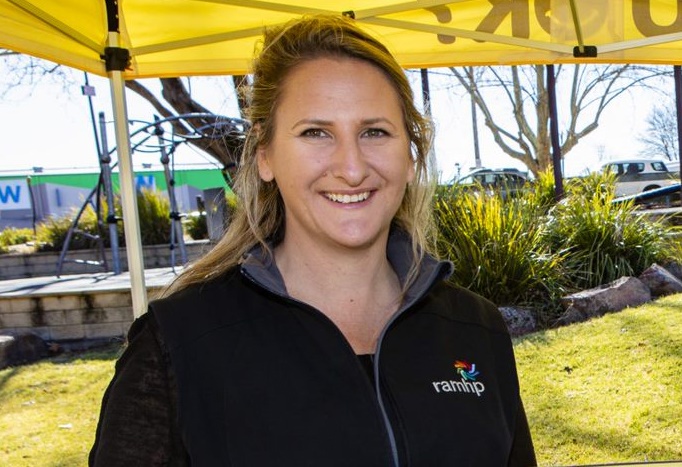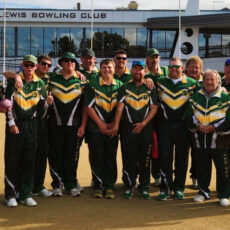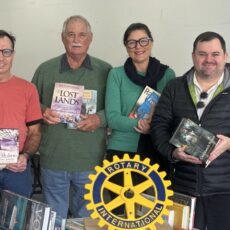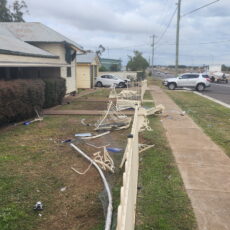By Letitia Cross, rural mental health coordinator for the Rural Adversity Mental Health Program (RAMHP) based in Moree, NSW.
THIS year was going to be mine.
I had said many times at the start of the year to friends that I had climbed the figurative mountain in the last few years. I had overcome some health challenges, family ill health, work difficulties, the fires were out and the drought was looking to turn. 2020 had to be good, easier. I was getting health, sport, balance and a sense of me back. Then COVID-19.
I am an educated, smart person. I had seen the COVID-19 briefings, I work in health and I really understood the implications but yet I was emotional, angry and dragging my feet about doing what had to be done; because this was supposed to be my year.
Then I came across comments from David Kessler, one of the world’s foremost experts on grief, and my response suddenly made sense. I am grieving. I am grieving for what I have lost; normalcy, financially, for my loss of connection, which is the epicentre of my being, and also for what I am yet to lose in this shifting world. And I am not alone. In conversation after conversation this week I have heard and held similar responses. We are grieving.
There is no doubt that our world has changed from this pandemic and that we are grieving on different levels. Having an impact on me is anticipatory grief, a grief for our more broadly imagined future. Like September 11, COVID-19 has changed and will continue to change the way we live from this point. That being said, we will get through this. We have been tested before and we are survivors. This fight is temporary, but that isn’t how it feels at the moment. It feels scary and never-ending. And I am not alone. This personal anticipatory grief is compounded by our collective grief, which we can feel as an undercurrent in our society.
But here is what I know about grief; naming it and understanding grief is powerful and helps. Grief doesn’t happen neatly or in order but Kessler has identified six key stages.
Denial: It’s just a flu, it won’t affect me.
Anger: You’re stopping me doing what?
Bargaining: If I stop seeing my mates for two weeks, then we will be ok, right?
Sadness: So many losses, will this end?
Acceptance: It’s happening, I can wash my hands, social distance and stay home.
Meaning: How is this shaping my life forward? What have I learnt from this?
Now I am not perfect, I haven’t skipped straight to meaning. By understanding my emotions as a normal stress and grief response to an abnormal situation, I can spend more time focussing on the important things rather than rallying against the unstoppable tide. Allowing and understanding this response empowers me and stops me choosing to play the victim. Now is the time for me to protect myself and my community, not to overreact.
But the question is how do I do this when my feelings can be overwhelming? Well here are some things that help me. Firstly, I see anticipatory grief is really an anxiety. I can control the amount it impacts me by balancing my thinking, being present, staying connected and letting go of what I can’t control. Secondly, I meet collective grief with compassion.
Balanced thinking is powerful because our minds can focus on the ‘what ifs’ and the worst case scenarios. I can’t stop this but what I can do is focus on balance and gratitude. For me this is not focussing on the thought that ‘everyone I loves dies’, rather that I have amazing health colleagues stepping up to the plate, taking on the medical fight against this virus. Rather than concentrating on the educational costs to my family, I focus on the amazing school community that is working their backsides off to pivot to an entirely new way of ensuring my children are supported online. Rather than centring on my loss, I am being grateful for the amazing friends, colleagues and family who have my back, or who offer to hold the load when the weight of this world can feel too big for me.
Being present in the moment is really practical when my brain starts doing donuts. To bring myself back to being present in the moment I short-circuit the anxiety or worry going around my head by either:
1) taking three deep breaths through my nose counting as I inhale and exhale; or
2) engaging the senses by listing one thing in the moment that I can see, hear, touch, taste and smell.
Staying connected is important. Just because we are physically isolated does not mean we should be socially isolated. I must admit that I am a hugger and these safety measures, though necessary, are having a profound impact on my mental health. It is important to be proactive, creative and committed to connections for our mental health.
Letting go is challenging, but if it is outside of my control, I have to let it go and believe in the good of this world. I cannot choose what happens to me or how others choose to act, but what I can control is how I respond. I can choose to wash my hands, physical distance, stay home and work towards the collective good.
Compassion is the final thing that helps me in addressing the collective grief of my community, country and world. We all deal with fear and anxiety in different ways, even if it is hoarding toilet paper or denying reality. I can choose to be generous, patient and kind to those that are doing the best they know how to in difficult circumstances.
This is a scary time in a changing world. It is OK to grieve; it helps to name it and understand it, and then it is our responsibility to step forward.
Acknowledgement to David Kessler and Scott Berinato: Harvard Business Review ‘That Discomfort You’re Feeling Is Grief’ https://hbr.org/2020/03/that-discomfort-youre-feeling-is-grief
To order photos from this page click here











